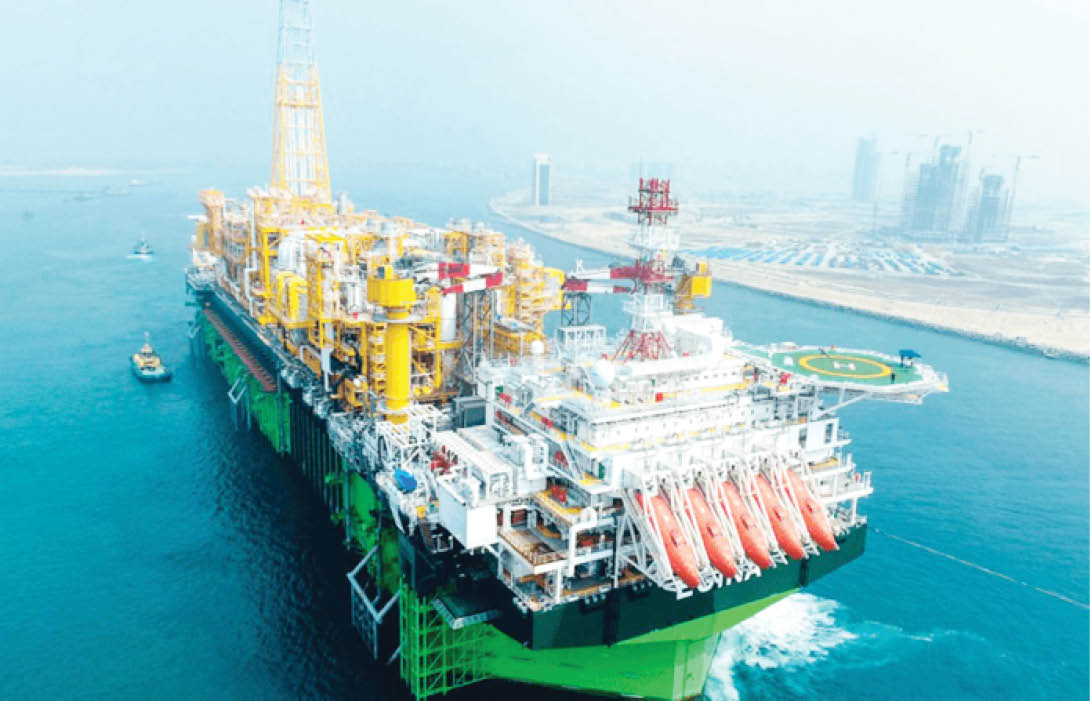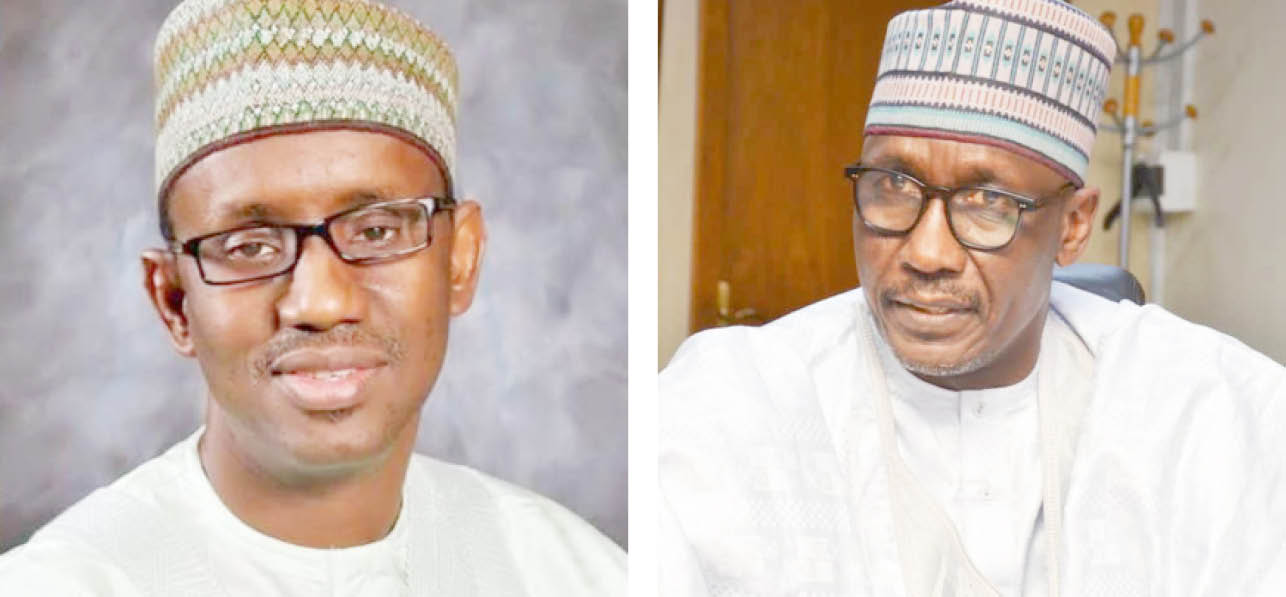Nigeria Loses N8.7trn For Failing To Meet OPEC Quota In 8 Months
Nigeria lost over N8.7trillion at N758/$ between January and August because of the country’s inability to meet its quota allocated by the Organisation of Petroleum Exporting Countries (OPEC), Daily Trust on Sunday reports. This is coming amid a deeper debt crisis, with experts calling on the federal government to take urgent steps to boost revenue […]

Nigeria Loses N8.7trn For Failing To Meet OPEC Quota In 8 Months
Nigeria lost over N8.7trillion at N758/$ between January and August because of the country’s inability to meet its quota allocated by the Organisation of Petroleum Exporting Countries (OPEC), Daily Trust on Sunday reports.
This is coming amid a deeper debt crisis, with experts calling on the federal government to take urgent steps to boost revenue by taming oil theft.
Nigeria, Africa’s biggest crude producer, failed to drill 144 million barrels of crude oil within the period under review compared to the quota allocated to the country by OPEC.
The 13-member OPEC group distributes oil production quotas to its members based on market conditions to ensure price and supply stability in the global oil market.
Border closure: We’re suffering – Nigeriens
I have no money, but I am very happy – Prof. A.T. Abdullahi (former Deputy Gov, Kano State)
Nigeria’s share of that quota was 1.8 million barrels per day for the better part of this period.
A review of data from the Nigerian Upstream Petroleum Regulatory Commission (NUPRC) and the monthly statistics from OPEC showed that while about 1.8 million barrels per day was allocated, amounting to 432million barrels for the eight-month period, it only managed to produce 288million barrels, amounting to N17.5trillion in earning at an average of $80 per barrel.
Oil prices peaked at $82 per barrel in January, dropped to $70 in March and is currently at $92 per barrel, compelling the use of $80 per barrel average price.
The total production indicates a monthly average of 1.2 million barrels per day.
Epileptic production
For over two years, Nigeria has been unable to meet its OPEC production quota, citing oil theft and pipeline vandalism in the Niger Delta as root causes.
But in the second half of last year, just before production fell to a historic 900,000 barrels per day, the government, in collaboration with local security groups, took steps to curb the menace.
The development led to the significant increase in Nigeria’s production to 1.3million barrels per day in February.

A former Minister of State, Petroleum Resources, Timipre Sylva and the Group Chief Executive Officer of the Nigerian National Petroleum Company Limited (NNPCL), Mele Kyari, had to shift the date Nigeria would meet its OPEC production quota several times in the last two years.
Sylva, before his exit, had pledged that Nigeria was finally on its way to fulfilling its production obligation in May this year. Kyari had, in February, promised that Nigeria intended to hit 2.2 million barrels per day without OPEC restrictions this year.
“We have crossed 1.6 million barrels per day; this is not rocket science. We have a line of sight to recover to the quota level of 1.8 million barrels per day. I know that it is not far away, probably two to three months maximum. But we will be there and that will bring back partners to invest, return the confidence of our investors and ultimately bring back growth.
“For us, we see a trajectory of restoring production, including condensates within the year. We believe we can hit a target of 2.2 million bpd, but our budget target is 1.8 million bpd, but we know that it is practical to do 2.2 million bpd within 2023,” he said recently.
Despite 48bn security contract, 400,000 barrels stolen daily – NSA
However, despite the surveillance contract reportedly worth N48 billion per year (N4billion per month), the National Security Adviser, Nuhu Ribadu, recently said the country was still losing 400,000 barrels of crude oil daily to local and international thieves.
Ribadu confirmed this when he led a presidential delegation to inspect oil and gas facilities at Owaza in Abia and Odogwa in Etche Local Government Area of Rivers State recently.
He said the activities of oil thieves and pipeline vandals had impacted negatively on the country’s economy and were partly responsible for the rising cost of living.
NNPC uncovers 356 illegal refineries, pipeline connections in 2 months
The NNPC said it had uncovered over 356 illegal oil refineries and connections scattered across the Niger Delta between July and August.
It said 20 illegal pipeline connections, 45 illegal refineries were destroyed in the Niger Delta between August 12 and 18, while 116 incidents were recorded across the Niger Delta.
In July, the NNPCL had said it recorded 240 incidents pertaining to crude oil theft and pipeline vandalism in the Niger Delta in one week. The NNPCL said the incidents mostly occurred in Bayelsa State between July 15 and 21.
Giving a breakdown, the company said it discovered 93 illegal pipeline connections and 69 illegal refineries.
2024 budget threatened
Recall that Daily Trust had reported that OPEC and its allies decided to reduce world oil output by 1.393 million barrels per day, which will result in a 20.7 per cent reduction in Nigeria’s oil production quota.
The 13-member oil cartel, during the oil market meeting held on June 4 in Vienna, decided to change the overall crude oil production level for OPEC and non-OPEC participating countries in the Declaration of Cooperation (DoC) to 40.46million bpd, effective January 1 through December 31, 2024.
Nigeria’s daily production quota was reduced to 1.380million barrels under the revised production schedule decided upon in the virtual conference, which will run from January to December, 2024.
Given that oil is a significant source of money for Nigeria, the reduction in the oil production quota by OPEC would constitute a restriction on its oil production and exports, which might have an impact on government revenue, budget planning and overall economic stability.
According to a statement by OPEC, the required production level for Congo and Nigeria may be updated to equal the average production that can be achieved in 2024 as assessed by IHS, Wood Mackenzie, and Rystad Energy) specialised in oil upstream by the next ONOMM to be held by the end of 2023.
While the reduction may amount to quantity shock, the expected increase in the price of crude, arising from a controlled global output, may result in some extra earnings for the NNPCL
Any consequence if a country exceeds OPEC agreement?
The cartel’s agreements usually spell out exactly how many barrels a day each member must cut. But ensuring that everyone abides by these quotas has been supported only by a fragile honour system, with OPEC having no official mechanism for punishing members that stray from their pledges.
Deal with crude oil theft – ACMAN
The Association of Capital Market Academics of Nigeria (ACMAN) said that at a conservative crude oil price of $85 per barrel, the loss to Nigeria in one month was over $1 billion.
The president of ACMAN, Professor Uche Uwaleke, said this during a world press briefing in Abuja to assess the key policy measures rolled out by President Bola Ahmed Tinubu in his first 100 days in office.
Uwaleke said, “We believe that swiftly dealing with the menace of crude oil theft will put the federal government in a stronger position to scale up compensation measures, including the implementation of a new minimum wage for workers, as well as the programme on food security expected to drive down prices. For example, a recent OPEC report put the country’s crude oil output at 1.2mbpd, indicating a huge volume deficit of circa 500,000mbpd compared to the 2023 budget target of 1.69mbpd and the OPEC quota of 1.74mbpd.”
In the same vein, the president of the Oil and Gas Services Providers Association, Mazi Colman Obasi, said it was wrong for Nigerians to think that oil theft was limited to a few persons that cut pipelines in Niger Delta communities.
“Oil theft is a large-scale operation involving the collaboration of many elements, including oil thieves and their foreign partners because a huge volume cannot be stolen in cans,” he said.
